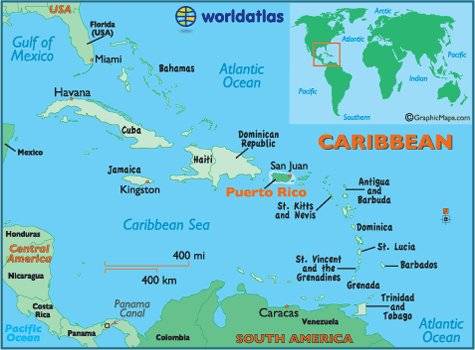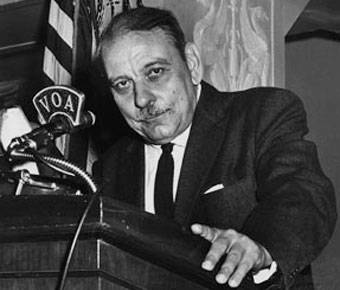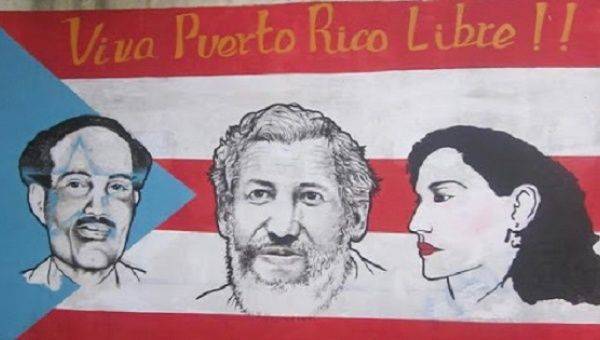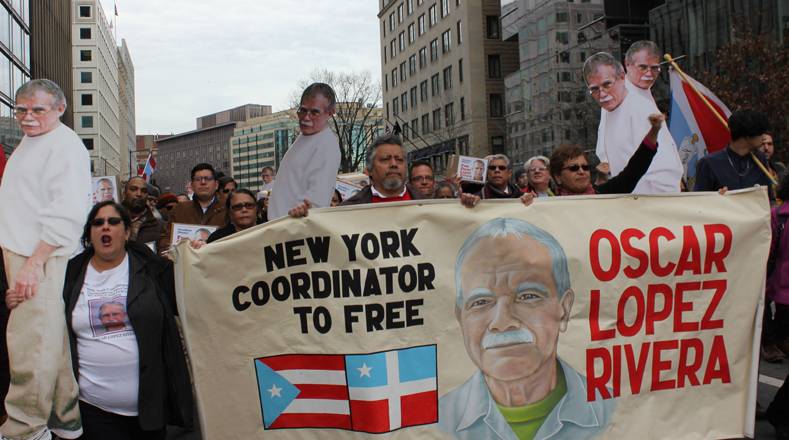Association or independence: what awaits Puerto Rico?
 An island in the Caribbean inhabited by Indians and called “Boriken” (“Borinken”) by them, was discovered by Christopher Columbus in 1493 year. At the beginning of the XVI century. began his active colonization by the Spaniards. At first, the island was called San Juan de Bautista - “St. John the Baptist”. But after in 1521, the island’s administrative center was moved to the new city of Puerto Rico, the name of the latter took root as the name of the whole island. For many centuries, Puerto Rico became a Spanish colony. The basis of its economy was agriculture, which produced such popular export crops as sugar, tobacco and coffee. As in many other Spanish possessions in the New World, in the XIX century supporters of political autonomy and even independence of the island from the metropolis became more active in Puerto Rico. However, on the islands of the Caribbean, the positions of the Spanish crown were much stronger than in the continental countries of South America, so neither Puerto Rico nor Cuba could achieve independence. The only exception was the colony of Santo Domingo, which first came under the authority of early-liberated Haiti, and then declared independence in 1844 as the Dominican Republic.
An island in the Caribbean inhabited by Indians and called “Boriken” (“Borinken”) by them, was discovered by Christopher Columbus in 1493 year. At the beginning of the XVI century. began his active colonization by the Spaniards. At first, the island was called San Juan de Bautista - “St. John the Baptist”. But after in 1521, the island’s administrative center was moved to the new city of Puerto Rico, the name of the latter took root as the name of the whole island. For many centuries, Puerto Rico became a Spanish colony. The basis of its economy was agriculture, which produced such popular export crops as sugar, tobacco and coffee. As in many other Spanish possessions in the New World, in the XIX century supporters of political autonomy and even independence of the island from the metropolis became more active in Puerto Rico. However, on the islands of the Caribbean, the positions of the Spanish crown were much stronger than in the continental countries of South America, so neither Puerto Rico nor Cuba could achieve independence. The only exception was the colony of Santo Domingo, which first came under the authority of early-liberated Haiti, and then declared independence in 1844 as the Dominican Republic. However, the colonial regime in Puerto Rico was less and less satisfied with the island’s Creole intelligentsia. 23 September 1868 launched an uprising in the city of Lares under the leadership of Ramon Betances and Segundo Ruiz Belvis. The Spanish authorities quickly suppressed the uprising, but could not stop the further spread of anti-colonial sentiment. In 1897, Luis Munoz Rivera and his comrades demanded that the Spanish government grant autonomy to Puerto Rico and Cuba. Understanding that the situation is becoming more and more difficult, the Spanish authorities even made concessions and allowed to form local governments accountable to the Spanish governor.
National liberation sentiments in Cuba and Puerto Rico were fueled by US authorities who were interested in weakening Spanish influence in the Caribbean. Having entered relatively late in the struggle for colonies, the United States was very late to the “colonial pie” section, so the only way to gain appetizing and economically or politically-important territories was their reconquest from previous owners. The role of the “victim” was ideally suited to Spain, which was a much weaker opponent than the United Kingdom or France. Already then, the Americans used a very noble excuse to help the Cuban, Puerto Rican and Filipino people to achieve a good goal - political independence and the building of democracy. Back in 1895, a powerful anti-Spanish uprising began in Cuba. In the United States, the rebels were very sympathetic, detachments of American volunteers went to the island, and in 1898, the United States sent the battleship "Men" - ostensibly to evacuate American citizens. 22 on April 1898, the US Navy began the blockade of the island, and 23 on April Spain declared war on the United States.
25 July 1898, the American troops landed on the island of Puerto Rico. In the shortest possible time the island was occupied by the Americans. The forces of the United States and Spain were unequal, and Madrid had no choice but to concede Puerto Rico, Cuba, the Philippines and the island of Guam in the Pacific. Thus ended the Spanish rule in Puerto Rico, which lasted nearly four centuries. The island was set up by the military administration of the American administration, which was appointed by the president of the United States of America. However, the US authorities still wanted to create the appearance of self-determination and democracy in Puerto Rico, therefore 12 on April 1900 adopted the “Foraker Act”, which provided for the creation on the island of its own legislative system - a bicameral Congress of Chambers - Executive Board, appointed by the administration and comprised of 6 Americans and 5 Puerto Ricans. Thus, the Americans even formally established control over the activities of the Puerto Rican legislature - six Americans could make or reject decisions by a simple majority, regardless of the will of the representatives of the Puerto Rican people.
Although initially many Puerto Rican politicians expected that the US military administration was a temporary phenomenon and eventually Washington would transfer the full power to the Puerto Rican people, the American administration on the island dragged on. In 1917, an act was passed that granted Puerto Ricans American citizenship. Thus, the United States has demonstrated that their presence in Puerto Rico is long lasting, most likely forever. Do not think that the Puerto Ricans themselves, this situation is very strained. American citizenship gave them much greater opportunities compared to residents of neighboring island states and colonies of the Caribbean. Given the growing unemployment and difficult economic situation on the island, many Puerto Ricans moved to the United States, where they had the opportunity of employment, albeit for non-prestigious work. Some Puerto Ricans entered the service in the US Army - again, a good way to live compared to the lives of unemployed Haitians or Dominicans. Of course, the national liberation movement on the island was preserved - many Puerto Ricans sought not so much to the well-fed as to the independent life of their island.
 But even many fiery fighters for independence have undergone a complex evolution.
But even many fiery fighters for independence have undergone a complex evolution. The path of ideological transformations of Luis Marina Munoz (1898-1980) - hereditary Puerto-Rican intellectual, poet and journalist is quite indicative. In his youth, Luis Marin Muñoz was involved in the creation of the Puerto Rican Socialist Party, a political organization that advocated for the political independence of Puerto Rico and the further building of socialism. However, in 1932, 34-year-old Muñoz joined the Liberal Party, and in 1938, he founded the Puerto Rico Democratic People’s Party. This party won the election in 1940, after which Munoz became president of the Puerto Rican Senate. In 1940, a former proponent of independence radically changed his views. He realized that the achievement of full national independence would bring Puerto Rico only numerous economic, social and political problems. Therefore, Munoz turned into an ardent opponent of the national liberation movement and even supported the introduction of censorship and persecution for raising the Puerto Rican flag in the locations of the island. As governor of Puerto Rico, he initiated the creation of thousands of questionnaires and cases for prominent members of the national liberation movement.
However, not all Puerto Rican politicians and intellectuals went “the way of Munoz” and turned into apologists of American influence on the island. In 1950, Puerto Rico’s economic situation began to improve rapidly, contributing to a new awakening of national liberation attitudes in society. Back in 1946, the Puerto Rico Independence Party was created, from which a more left-wing and radical Independence Movement split in 1959. His backbone consisted of radical students - members of the University Federation for Independence, who were impressed by the victorious Cuban revolution. Proponents of independence then established close ties with the leadership of Cuba, and with the left and nationalist movements of several Latin American countries, including Chile, Nicaragua and El Salvador. In 1971, the Puerto rican Socialist Party was established on the basis of the Movement for Independence, speaking from Marxist positions and demanding the granting of political independence to Puerto Rico, followed by the transition to building socialism. Supporters of independence in 1970-s managed to gather thousands of meetings against the American government. The new generation of Puerto Ricans did not want to live any longer as a US semi-colony. This was facilitated by the revival of Latin American, Hispanic identity. Many Puerto Ricans felt that in the United States they remained second-rate people, despite their citizenship, at the same time moving away from other Hispanic Latin Americans living in their nation-states.

Following the example of the youth of a number of other Latin American countries, the Puerto Rican radicals in the early 1960s. tried to organize a real guerrilla war against American rule on the island. In the mountains in the northwest of the island, the Armed Movement of the People (Movimiento Armado del Pueblo - MAPA) was founded. His center operated on a farm near the town of Moko. Puerto rican guilleros tried to get supplies weapons to New York, where their like-minded people from among the local Puerto Ricans were to proceed to action. However, the police soon managed to cover the group. In January, 1964 police attacked the MARA camp near Moko. But the elimination of this group did not mean the end of Puerto Rican resistance.
In 1967, Armed Liberation Teams were created ”(Comandos Armados de Liberacion - CAL), which launched regular attacks on offices and enterprises of American companies operating in Puerto Rico. In this way, the Guilleros wanted to get the American capital out of the island. In addition, CAL undermined the pipeline, which supplied fuel to the US military base. The militants of the organization attributed their activities to the need to minimize the American economic and military presence in Puerto Rico, referring to the method of urban guerrilla warfare and calling for the use of the Algerian experience.
At about the same time, another organization appeared - the Armed Revolutionary Movement for Independence (MIRA), which was also inspired by the example of the Cuban revolution. One of the most well-known actions of this group was the seizure of 11 in September by 1969, the office of WUNO radio station in San Juan. 1978 to 1986 another armed organization, Los Macheteros, was active in attacking police stations and US military patrols. October 30 1983 Macheteros staged an attack with grenade launchers on the FBI office in San Juan.
Nowadays, the struggle for independence of Puerto Rico no longer has such a heat. But this does not mean that supporters of self-determination have come to terms with the future of the island as an American semi-colony. Interestingly, in September 2016 was held in Moscow an international conference “Dialogue of Nations. The right of peoples to self-determination and the construction of a multipolar world ", in which, along with representatives of the national liberation movements of Western Sahara, Catalonia, Ireland, representatives of Puerto Rico also participated. Supporters of independence argue that the current situation of Puerto Rico is seriously hampering the possibility of socio-economic development of the island nation. The Puerto Rican market is almost completely under the control of American monopolists, which impedes the development of local business and forces Puerto Ricans to buy American products. The money that American companies earn on the island, then does not return to the Puerto Rican economy - they will go to the continent forever. Despite the fact that Puerto Rico has the status of an associated state with the United States, in the opinion of supporters of independence, Washington does not care at all about solving social problems of Puerto Ricans, about the welfare of the island’s population, and is only concerned about maintaining its economic priority and military presence.

Interestingly, one of the latest decisions of Barack Obama as US President was the release from prison of Oscar Lopez Rivera - the hero of the Puerto Rican national liberation movement. In prison, Oscar Lopez Rivera spent more than 33 years - he was put in prison for active participation in the national liberation movement and sentenced to seventy (!) Imprisonment. According to the investigation, Rivera commanded the Armed National Liberation Forces of Puerto Rico - one of the numerous groups of Puerto Rican guerilleros, which, however, acted not on the island, but in Chicago and New York.
According to the Puerto Rican patriots, such a move was an indirect recognition by the Americans of the need for change in the status of Puerto Rico. It is not ruled out that in the final analysis, Washington will really think about the advisability of maintaining the status of a “freely associated state” for Puerto Rico - not because of a desire for justice, but for reasons of economic and political advantage.
Information